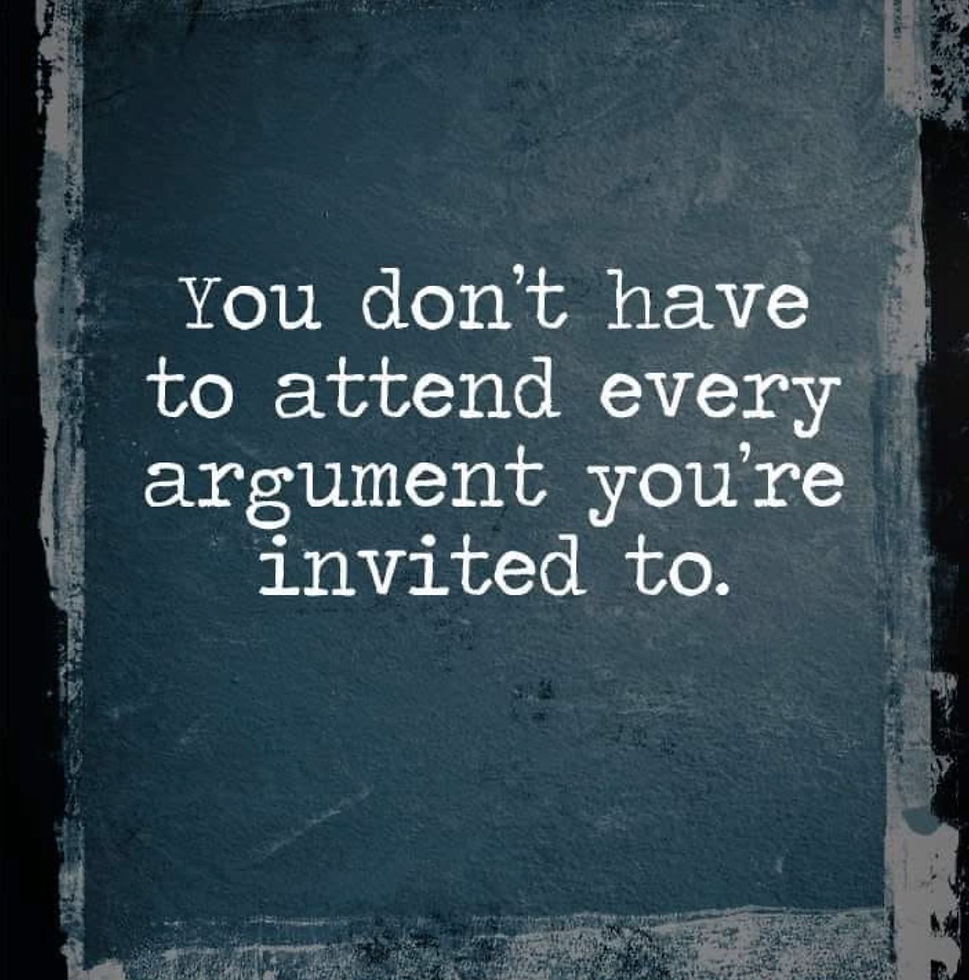
Picking your battles. The art of not attending every argument you are invited to!
- Avra Poelmann

- Oct 20
- 2 min read
Hello beautiful Souls. My message today is about picking your battles and the essential art of saying “NO” You don’t have to attend every argument you are invited to!
In a world engineered for outrage, anger and fear the invitation to an argument is constant. It appears in hostile email chains, loaded social media comments, and heated family debates. The magnet pull to jump in, defend, and correct is powerful.
There is the truth that will immediately raise your quality of life: You are not obligated to accept the invitation.
Choosing to decline an argument is not a sign of weakness; it is a powerful act of self-preservation and a strategic choice to protect your most valuable resources: your time, energy, and peace.
Every argument you attend drains the resources you could be spending on growth, joy, or actual problem-solving. It's a lose-lose proposition when the goal of the argument isn't mutual understanding, but simply chaos or validation.
Mastering selective engagement requires awareness and a few good exit strategies to graciously decline the argument.
Some useful tips:
1. Always Assess the Return on Investment. The hardest thing to do is remember to pause. Before you type, click, or speak, ask yourself: "Will engaging in this change anything for the better?"
• If the person is only interested in being right, your facts are useless.
• If the situation is only a performance for others, your dignity is at risk.
• If the argument has no clear resolution, your time is being wasted.
When the answer is "no," the only logical move is to walk away.
2. Master the Neutral Exit Line
You don't need to be rude or slam the door. Use neutral, boundary-setting phrases to defuse the conflict and retain your composure:
• The Pause: "I'm going to take a break from this conversation right now."
• The De-escalation: "I understand your perspective, but I am respectfully going to disengage from this topic."
• The Agreement to Disagree: "I think we've both made our points. Let's agree to put a pin in this."
These statements shut down the conflict loop without inviting an immediate rebuttal, protecting your energy without sacrificing your professional or personal grace.
3. Validate the Emotion, Not the Argument
Often, people just want to feel heard. You can acknowledge their frustration or upset without agreeing with the premise of their argument.
Try saying: "I can see why you feel so strongly about this," or "I understand that’s a frustrating situation for you."
This simple act validates their feeling while keeping your position separate and eliminating the need to defend it.
The need to select your battles isn't optional; it's essential mental hygiene. Your peace is your currency. Spend it wisely. When you choose not to attend an argument, you are choosing clarity over chaos and progress over performance.
It becomes about maturity and emotional intelligence to start to identity and consciousnessly make the decision not to be reactive.

Comments